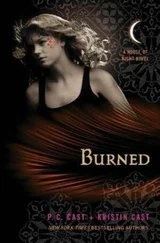Thomas Enger - Burned
Здесь есть возможность читать онлайн «Thomas Enger - Burned» весь текст электронной книги совершенно бесплатно (целиком полную версию без сокращений). В некоторых случаях можно слушать аудио, скачать через торрент в формате fb2 и присутствует краткое содержание. Жанр: Триллер, на английском языке. Описание произведения, (предисловие) а так же отзывы посетителей доступны на портале библиотеки ЛибКат.
- Название:Burned
- Автор:
- Жанр:
- Год:неизвестен
- ISBN:нет данных
- Рейтинг книги:5 / 5. Голосов: 1
-
Избранное:Добавить в избранное
- Отзывы:
-
Ваша оценка:
- 100
- 1
- 2
- 3
- 4
- 5
Burned: краткое содержание, описание и аннотация
Предлагаем к чтению аннотацию, описание, краткое содержание или предисловие (зависит от того, что написал сам автор книги «Burned»). Если вы не нашли необходимую информацию о книге — напишите в комментариях, мы постараемся отыскать её.
Burned — читать онлайн бесплатно полную книгу (весь текст) целиком
Ниже представлен текст книги, разбитый по страницам. Система сохранения места последней прочитанной страницы, позволяет с удобством читать онлайн бесплатно книгу «Burned», без необходимости каждый раз заново искать на чём Вы остановились. Поставьте закладку, и сможете в любой момент перейти на страницу, на которой закончили чтение.
Интервал:
Закладка:
6tiermes7 likes Heat. And Voight is on to something. It’s important to stay healthy. And it’s good to know that someone cares about you, even if Henning doesn’t know who that someone is.
Chapter 29
6tiermes7 was right. It won’t be easy to lie low. Too many questions are buzzing around his head and the more he thinks about it, the more convinced he is that Henriette Hagerup’s college and its students hold many of the answers.
He visits Westerdal’s homepage and switches on his mobile again. Just like the last time, the messages pile up. And just like the last time, he deletes them without checking them first. He clicks on the college’s film section, finds a staff list and localises Yngve Foldvik after some quick scrolling and clicking. A photograph with a CV and contact details pop up. Henning studies him.
Where does he know him from? Dark hair, side parting to the left. Narrow nose. Sallow skin, not brown, the kind which tans easily. Light stubble with streaks of grey. He looks to be in his late forties, but he is still a handsome man. Henning suspects some of the students have secret crushes on him.
He checks the time. 5.30 p.m. Tariq’s last words will have to wait. He rings Foldvik’s mobile instead. Three rings later, he strikes lucky. Henning introduces himself. Foldvik says ‘hi’ in a voice that Henning instantly recognises as the ‘oh shit’ tone.
‘I don’t have much to say to you,’ he begins. His voice is high.
‘I don’t want you to, either,’ Henning counters. Silence follows. He knows that Foldvik hasn’t quite understood what he meant. And that’s the idea. He lets Foldvik wait until he grows sufficiently curious and simply has to ask:
‘What do you mean?’
‘If I could meet you tomorrow morning, at a time convenient to you, then I can explain what I want to talk to you about. But I would be lying if I said it didn’t have anything to do with your late student.’
‘I don’t know if I have — ’
‘It’ll only take a few minutes.’
‘Like I said, then — ’
‘I want people who read about Henriette to get as accurate a picture of her as possible. I think you might be the most suitable person to paint that. You knew her in a different way to her fellow students, and — to be honest — they have a tendency to say some strange stuff.’
Another silence. He can hear Foldvik mull it over. And that’s part of the technique. Massage the ego of those you want to interview to such an extent that it becomes harder and harder for them to say no.
‘Okay, two minutes. Ten o’clock tomorrow?’
A broad smile forms around his lips.
‘Ten o’clock would be fine.’
*
It is a straightforward matter to write out an interview when he has everything on tape. To begin with, he decides to use everything Tariq said, word for word, since they were the man’s last, but he abandons that idea as soon as the interview takes shape on his computer. Too much irrelevant information. And he doesn’t want people to know everything Tariq said about his brother. After all, Mahmoud is still in custody and it very much remains an open investigation.
It takes him half an hour to type up everything Tariq Marhoni said. He starts to edit and decides to focus on the fine description Tariq gave of his brother.
My brother is a good man.
It borders on the dull, but it’s a start. He types on:
Tariq Marhoni spent his last moments praising his brother, who is suspected of murder. Read the exclusive interview here.
He knows that people will read this story, even though it is not very exciting. There is something about a man’s last words. They appeal, no matter what he said. And when it is as exclusive as this, everyone with even a vague interest in the story will click on it. Other media will trawl the story for quotes they can use. This means ‘…, said Tariq Marhoni to 123news, only minutes before he died.’
Quotes. Apart from advertising revenue and profit, being quoted in rival media is what matters to many newspapers. At the same time, it is possibly also the greatest source of irritation, especially among smaller publications, when the big fish use a quote from someone else’s story and fail to credit them.
This happens every day. The big fish are so afraid of the little fish growing bigger that they sacrifice both good manners and press ethics in the process. If it isn’t a case of downright theft, they will often contact the source to obtain the same quotes which enables them to insist — often with a large portion of indignation — that ‘we just happened to have the same idea’. NRK, for example, has a standard policy that if a story appears in two media, at least, there is no reason to credit either of them.
He doesn’t know if this policy has changed during the two years he has been out of the game, but it’s impossible not to quote the Tariq story. He guesses that Heidi Kjus will be particularly pleased about it. Possibly Iver Gundersen, too.
No, on second thoughts, no. Not Gundersen.
He thinks about BBB. Bad Boys Burning. What a name for a gang. Some gangs have a great need to send out warnings. Bandidos. Hell’s Angels. And yet, Henning can feel himself growing curious about BBB. He googles the full name and gets thousands of hits, many of which are irrelevant and inaccurate. Reviews of the film Bad Boys, articles about a Swedish crooner who had a hit with a song called ‘Burning’ a couple of years ago, people who are described as ‘bad boys’ and a gang from the Furuset area of Oslo, who also call themselves that. Little of relevance.
However, he finds an article from Aftenposten from six months ago about a gang confrontation in Furuset, coincidentally. The Google text doesn’t mention BBB in the link, but he clicks on it anyway.
He gasps for air. Nora wrote this story. She has ventured into dangerous territory. Gangs are usually associated with drugs and debt collecting. Its members are wannabe criminals, people searching for an identity, usually. That’s one of the reasons they become hooligans. To have a place to belong.
Nora’s headline is ‘ BRUTAL GANG CLASH IN FURUSET ’. He looks at the story. No photos from the crime scene. Only an archive photo of an axe against a baseball bat. He guesses that Nora worked the night shift and that Aftenposten wasn’t prepared to fork out on a new picture from Scanpix. Or that Scanpix has had to make cuts, too.
Nevertheless, he can see that Nora did a good job. She interviewed terviewed the officer in charge of the investigation, the head of Oslo’s Operation Gangbuster, got hold of two eyewitnesses, spoke to a high-profile ex-gang member who knows what this kind of confrontation is about and delivered fifty lines on a subject which normally gets only a mention in most newspapers.
People don’t usually care about gang fights. They think: ‘great, let them kill each other, get a few idiots off our streets’. He isn’t sure why he does it, but he decides to call her. It is possible she has fresh information about these morons, but he suspects he might have an ulterior motive.
He wants to know where she is.
He knows that it is stupid and beyond all reason, but he can’t help it. He wants to know if she is with Gundersen, if her voice is happy or sad, if there is a hint of longing when she hears him speak. They haven’t spoken on the telephone since the day Jonas died. She called to ask him if he could pick up Jonas from nursery and look after him until the following morning, even though it was actually her week to have him. She wasn’t feeling very well. He replied: yes, of course, don’t worry about it.
And he knows it is not the fire itself, or that Jonas died, which is eating Nora. She will never forgive herself for falling ill that day and asking him to swap. If she hadn’t felt unwell, Jonas wouldn’t have been with Henning. And their son would still be alive.
Читать дальшеИнтервал:
Закладка:
Похожие книги на «Burned»
Представляем Вашему вниманию похожие книги на «Burned» списком для выбора. Мы отобрали схожую по названию и смыслу литературу в надежде предоставить читателям больше вариантов отыскать новые, интересные, ещё непрочитанные произведения.
Обсуждение, отзывы о книге «Burned» и просто собственные мнения читателей. Оставьте ваши комментарии, напишите, что Вы думаете о произведении, его смысле или главных героях. Укажите что конкретно понравилось, а что нет, и почему Вы так считаете.












